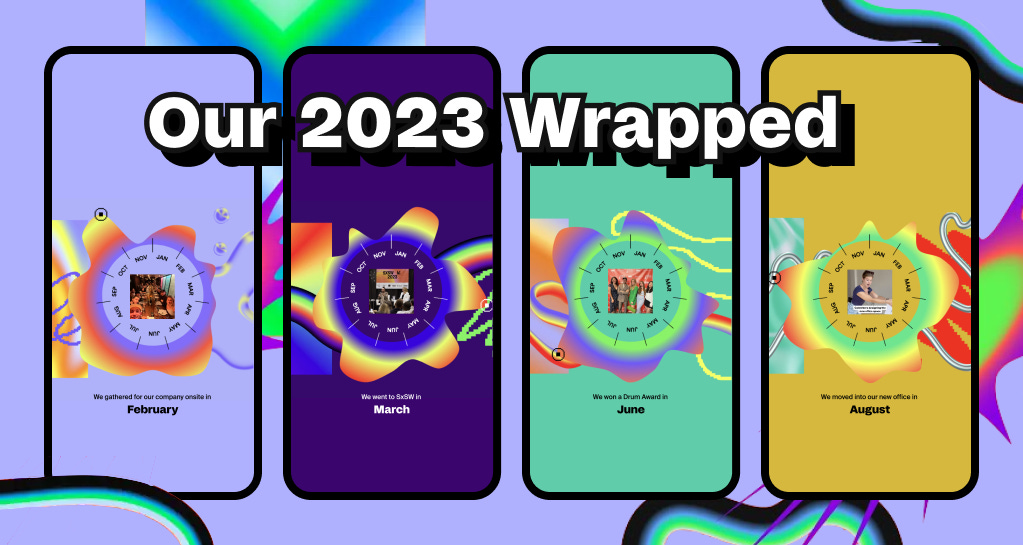📰 NoGood News | Vol. 57
Welcome to our 2023 NoGood Wrapped
Hi NoGoodies,
Before we jump into another round of the NoGood News, here's a quick TL;DR of what's below:
The unconventional Gen Z money mentality
Analyzing the generational spending experienceThe quintessential 2024 search engine guide
Navigating the labyrinth of online contentThe 2023 NoGood Wrapped
A year's review of growth and accomplishments
Ready? Let's get into it.
💰 How Gen Z spends money differently
A breakdown of its distinctive consumer priotities
Gen Z spends money in an entirely different way than other generations.
Here’s a breakdown of the thinking behind the Gen Z money mentality:
1. Experience-driven spending – emphasizing experiences or the idea of a certain lifestyle rather than the products themselves.
2. YOLO mentality and instant gratification – focusing on immediate value and instant gratification in product or service offerings
3. Dupe culture – highlighting practicality and value over brand names or expensive price tags.
Do you agree with the Gen Z money mentality? Read the full breakdown and give us your take.
🔎 The 2024 search engine optimization guide
A guide to maneuvering the vast world of online content
In today's digital world, dozens of factors influence search engine rankings.
Let's explore the technical optimization that underpins them and decipher the ever-evolving algorithms that drive our quest for information:
1. Relevance – This examines whether a page contains the same keywords as a search query. Pages that align well with user intent and deliver relevant content tend to rank higher.
2. Backlinks – High-quality backlinks from reputable websites can significantly improve a page’s ranking. Pages with a few high-quality backlinks often outrank those with many low-quality backlinks.
3. Freshness – Queries like “latest international news” prioritize recently published content. Freshness ensures that users get the latest and most relevant information for their queries.
Be sure to browse the whole breakdown for a solid foundation of operating search engines.
🔁 NoGood's 2023 Wrapped
A recap of our top focuses and growth drivers
This year, we got up to NoGood:
1. In February, we gathered for our company onsite, bonding, learning, and strengthening our team.
2. In March, we presented on the SxSW panel, with an audience so full an encore was required.
3. In June, we won a Drum Award, received distinguished honors for our outstanding achievements in the “Brilliant Use of Search” and “Fashion and Beauty” categories.
4. In August, we moved into our new office, a collaborative hub for our AI scientists, award winners, and creative visionaries.
Peruse our full 2023 Wrapped, from focuses to accomplishments and everything in between.
🎙 Q&A with an expert
A bi-weekly interview series with the best in the game
Q: How can SEM professionals leverage emerging technologies, such as machine learning and natural language processing, to refine keyword targeting and ad copy creation for better performance and engagement?
A: Machine learning (ML) and natural language processing (NLP) enable SEM experts to thoroughly understand the context and semantics of keywords. This goes beyond mere exact matches and enables more precise and diverse keyword targeting based on user intent. ML algorithms can dynamically incorporate keywords into ad copy based on user queries, ensuring a high level of relevance to the searcher's intent. This in turn increases click-through rates (CTR) and conversion rates while lowering overall costs.
Q: What role will contextual advertising play in SEM moving forward, considering the evolving privacy regulations and the growing emphasis on targeting based on context rather than individual user data?
A: Contextual advertising attempts to present ads that are directly related to a user's current content consumption. This can increase the relevance of ads, leading to higher click-through rates (CTR) and better quality traffic as ads are tailored to the user's interests. The introduction of strict privacy regulations such as GDPR and CCPA, coupled with web browsers restricting third-party cookies, limits advertisers' ability to utilize and track individual user data. Contextual advertising is becoming a privacy-friendly alternative that allows advertisers to target users based on their interactions with content and minimize reliance on personal data.
✍️ We wish we wrote this
A curated list of the past 2 weeks' must-read articles:
How Lyft transcends ride sharing to become a digital retail service
Brand building through the 95/5 rule: The secret to marketing success
Playing catch up: How Amazon fell behind amidst the burgeoning AI surge
👀 Keeping up on the socials
Because we know you like to stay in the know:
A/B testing on Instagram makes Reels the ideal short-form video experience
If Gen Z had an employee helpline
The office quiet booth is anything but tranquil



